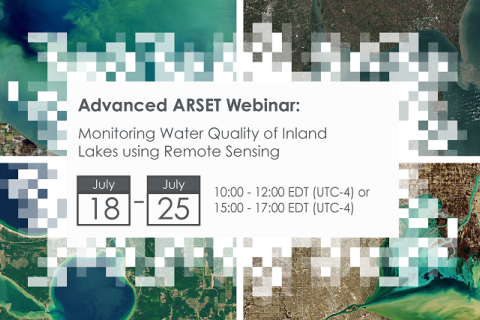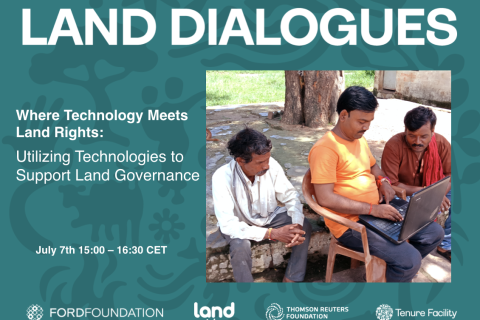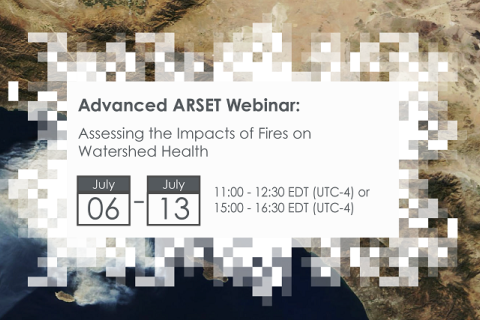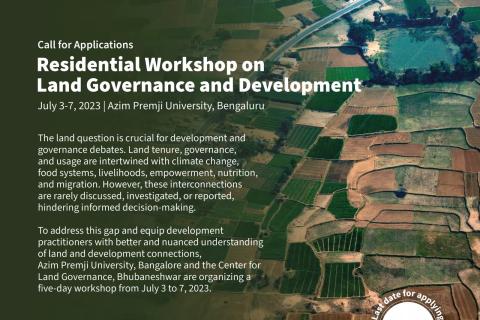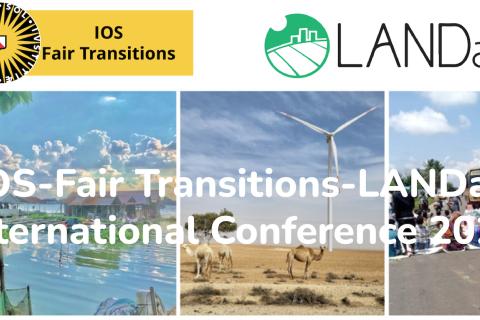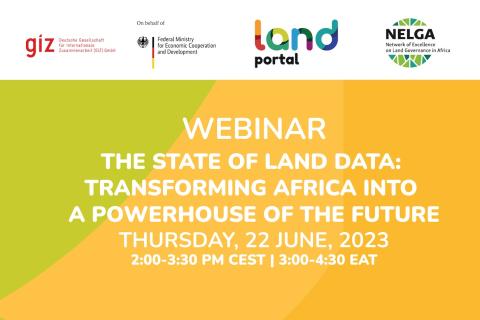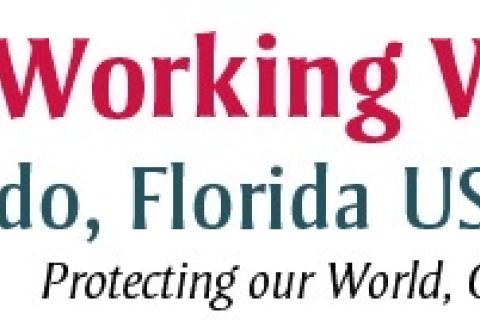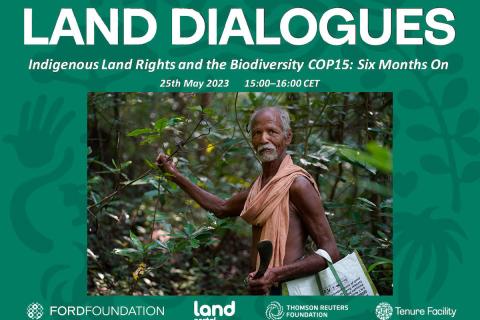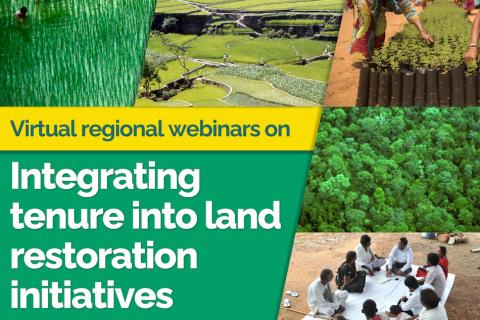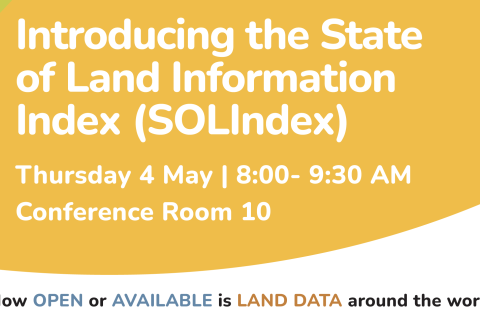Missed an interesting event or property rights? Find out the headlines and information about any past events or conferences.
Monitoring Water Quality of Inland Lakes using Remote Sensing
NASA’s Applied Remote Sensing Training Program (ARSET) has opened a new open, online webinar series: Monitoring Water Quality of Inland Lakes using Remote Sensing. This advanced-level training will focus on using remote sensing observations from Landsat 8 and 9, Sentinel-2, and Sentinel-3 for assessing water quality parameters, including chlorophyll-a concentration, turbidity, and Total Suspended Solids (TSS) in inland lakes. This training will also highlight the importance of in situ measurements of these parameters, coincident with satellite observations, in developing methodologies for operational water quality monitoring.
Where Technology Meets Land Rights: Utilizing Technologies to Support Land Governance
This webinar discussed the implications of technologies for land rights, including the potential benefits and drawbacks. The webinar considered whether technology and data sharing a viable and practical Indigenous communities to defend their land rights.
Assessing the Impacts of Fires on Watershed Health
NASA’s Applied Remote Sensing Training Program (ARSET) has opened a new open, online webinar series: Assessing the Impacts of Fires on Watershed Health. This advanced-level, three-part training will focus on using remote sensing observations for monitoring post-fire impacts on watershed health. Specifically, this training will highlight uses of NASA Earth observations (EO) for pre-fire land cover mapping, watershed delineation and stream mapping, post-fire burn severity mapping, and pre- and post-fire riverine and freshwater water quality.
Residential workshop on Land Governance and Development
To equip development practitioners with better and nuanced understanding of land and development connections, Azim Premji University, Bengaluru and the Centre for Land Governance, Bhubaneswar are organising a five-day residential workshop from 3 July–7 July 2023.
IOS-Fair Transitions-LANDac International Conference 2023
We are happy to announce the joint IOS-Fair Transitions-LANDac International Conference at the crossroads of the fair transitions and land governance debates in the context of climate change. The conference is structured around the joint challenge of finding ways to make transitions fair and inclusive, for human and non-human life.
The State of Land Data: Transforming Africa Into a Powerhouse of the Future
This webinar aimed to build the capacity of researchers and practitioners across Africa to better understand sustainable approaches to land data governance. The webinar highlighted the importance of good land data governance for improving property rights and enabling more efficient government services.
Mainstreaming land rights of the rural poor in the climate discourse: Side event
The aim of this event is increasing public understanding of the links between climate change, disasters, and land tenure rights, and bringing land tenure issues in the climate change discourse, listening particularly to the voices of civil society and youth. The discussion is also expected to bring forth some ideas for action both for the new GFAR Collective Action on land tenure and climate change, and for policy makers.
FIG Working Week 2023
When our global community unites, the energy is unstoppable. That’s why FIG and the local organisers, NSPS, are thrilled to invite you for the FIG Working Week 2023. Look forward to an exciting week-long conference that brings the international community of surveying and spatial professionals together to experience a mix of interesting technical sessions and workshops, a trade exhibition and a variety of side events and social functions.
Indigenous Land Rights and the Biodiversity COP15: Six Months On
After two weeks of tense talks, the recent UN Biodiversity Conference COP15 ended with a landmark agreement to guide global action on nature through to 2030. The Kunming-Montreal Global Biodiversity Framework (GBF), includes concrete measures to halt and reverse nature loss, including putting 30% of the planet and 30% of degraded ecosystems under protection by 2030.
Application of NASA SPoRT-Land Information System (SPoRT-LIS) Soil Moisture Data for Drought
NASA’s Applied Remote Sensing Training Program (ARSET) has opened a new open, online webinar series: Application of NASA SPoRT-Land Information System (SPoRT-LIS) Soil Moisture Data for Drought. This 3-part webinar series is focused on the introduction of the NASA Land Information System (LIS) output of soil moisture at various depths for drought analysis and monitoring. Examples from operational applications as well as practice exercises (for using LIS data for drought monitoring) will be included in this course. Access to the SPoRT-LIS products via online viewer, in GIS formats, and GIS-based display tools, will also be included. Moreover, self-paced microlessons will be available to help users confirm their understanding and improve their skill via homework lessons between live sessions.
Regional webinars on integrating land tenure into restoration initiatives
These webinars aim to raise awareness on the value of tenure security and its contribution to biodiversity conservation, sustainable land management, ecosystem restoration, and climate change mitigation and adaptation while improving food security and local livelihoods.
Introducing the State of Land Information Index
This side event will serve to introduce the Land Portal’s State of Land Information Index (SOLIndex), which measures openness of land data at the country and global level. The aim of this index is to make land-related findings more actionable and to complement existing land governance monitoring systems, such as tools developed by GLTN. The SOLIndex provides an overall indicator that assesses the openness of land data and information at global and country levels. The SOLIndex can be used as a diagnostic and advocacy tool for making land data more open and inclusive in support of good land governance.
This side event will explore the range of indicators that constitute the index, explore strengths, weaknesses, opportunities and threats of the collection of these indicators in an effort to obtain and incorporate feedback from GLTN Partners into the process of validating the indicator.

